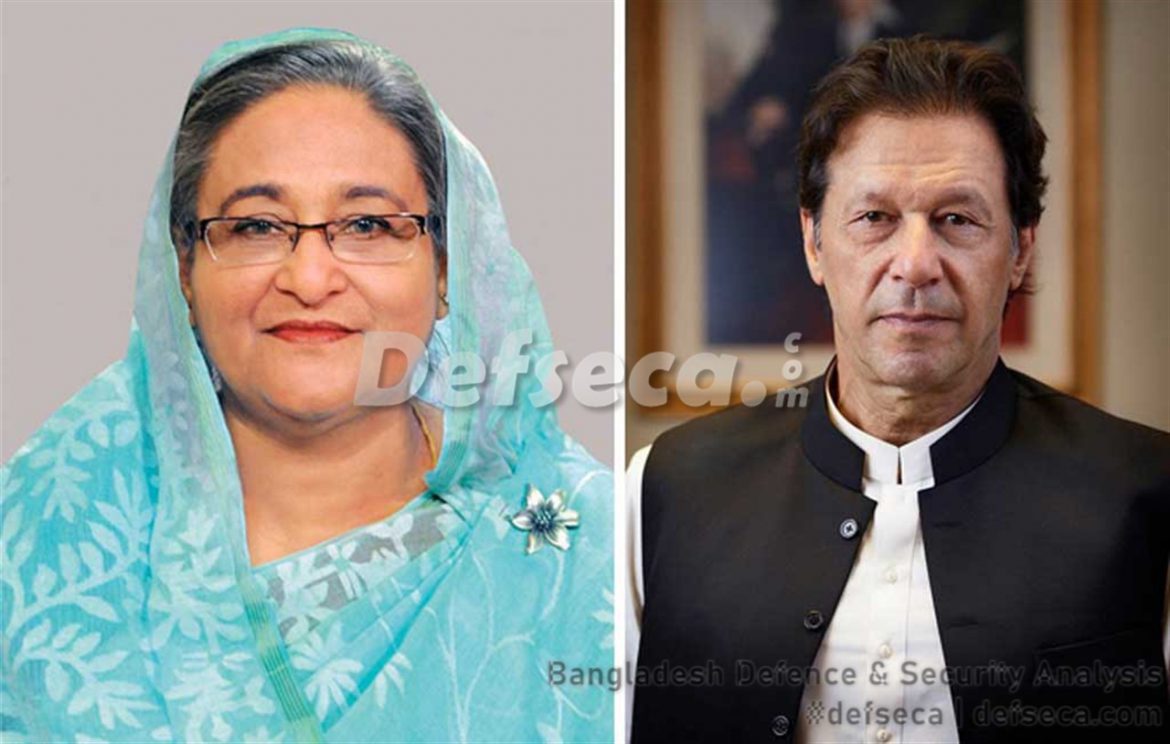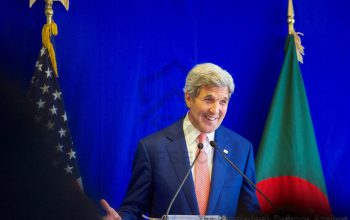Diplomats from Bangladesh and Pakistan are working closely behind the scenes to improve bilateral ties between the two South Asian Muslim majority countries.
Bangladesh government led by Prime Minister Sheikh Hasina successfully tried and executed a number of convicted war criminals from the 1971 war. This was vehemently opposed in Pakistan and in 2016 the Pakistan National Assembly unanimously passed a resolution to condemn the international war crimes trials of Pakistani agents in Bangladesh.
Bangladesh later refused to approve the appointment of a Pakistani High Commissioner for 20 months. Pakistan later made a fresh proposal for appointment of Imran Ahmed Siddiqui as its envoy to Dhaka. This was approved by the Bangladeshi authorities in November last year with Siddiqui joining in January 2020 raising prospects of improving bilateral relations between the two South Asian nations.
The Pakistani envoy met with Bangladesh Foreign Minister AK Abdul Momen earlier this month, which is being seen as a pivotal step in attempting to improve relations.
At the same time relations between Bangladesh and India have worsened with Bangladesh’s Prime Minister not allowing India’s High Commissioner Riva Ganguly Das to see her.
Bangladesh also cancelled visits of all its ministers scheduled to visit India since the end of last year after Indian authorities took unilateral steps to hurt Bangladesh’s interests.
Dhaka believes under the Modi regime India has given up its secular ethos exchanging it with Hindu extremist beliefs. This is particularly alarming for Bangladesh, which has strongly worked for relations on the basis of a common secular pathway that emphasises more on trade and cultural ties instead of narrow religious perspectives practiced in increasingly intolerant India.
The lack of interest from Bangladesh forced India to replace its top representative in Bangladesh with a non-Bengali by the name of Vikram Doraiswami. It remains to be seen how effective he would be given the increasingly cooling ties.
Pakistan’s relationship with Bangladesh has always seen the involvement of India. This time around Bangladesh and Pakistan are starting to afresh without India actively getting an opportunity to sabotage ties.
The new found traction can be attributed to the rising influence of China in the region. The Chinese have become increasingly involved in trade, security and international relations of every country in the region including Bangladesh and Pakistan.
Bangladesh has sought $64 billion in investment from China in its infrastructure projects to ensure the country becomes a developed nation. Dhaka is already an active member of the Belt and Road Initiative (BRI). China also approved tariff-free access to 97% of all Bangladeshi exports thereby setting a strong example that impressed Dhaka. China has also extended all out cooperation to Bangladesh to face the COVID-19 situation.
As a result of the increasing cooperation it was not surprising that Bangladesh remained silent during a recent military standoff between India and China. Bangladesh did not even extend its condolences to India over the deaths of 20 of its Army personnel including a Colonel during a fight with China in the mountainous Ladakh region.
Bangladesh also subtly rejected India’s overtures to supply it with military equipment. Bangladesh’s military views it as an attempt to weaken Bangladesh’s security apparatus.
The change in Dhaka’s attitude is a reflection of how poorly India treated its closest partner in the region. Anti-India sentiments are at an all-time high in Bangladesh because of the regularised murders of Bangladeshi civilians on the border by Indian security forces and India’s interference in Bangladesh’s internal affairs.
Military officers have alleged Indian intelligence authorities have tried to manipulate important appointments in leadership positions of the armed forces to persons having “pro-India” leanings. This has not gone down well within the armed forces and general people of Bangladesh who strongly resent India’s hegemonic behaviour.
Tiny Nepal showed a rare example of bravery by rebuffing India. Larger countries such as Bangladesh and Pakistan have realised working together to prevent India’s hegemony might be the best way to move forward.
Even without the India element there is room for Bangladesh-Pakistan ties to grow significantly especially in relation to defence, trade and investment.
Time has become an important healer with younger generations of Bangladeshi and Pakistani people seeking strong bilateral ties between Dhaka and Islamabad.




